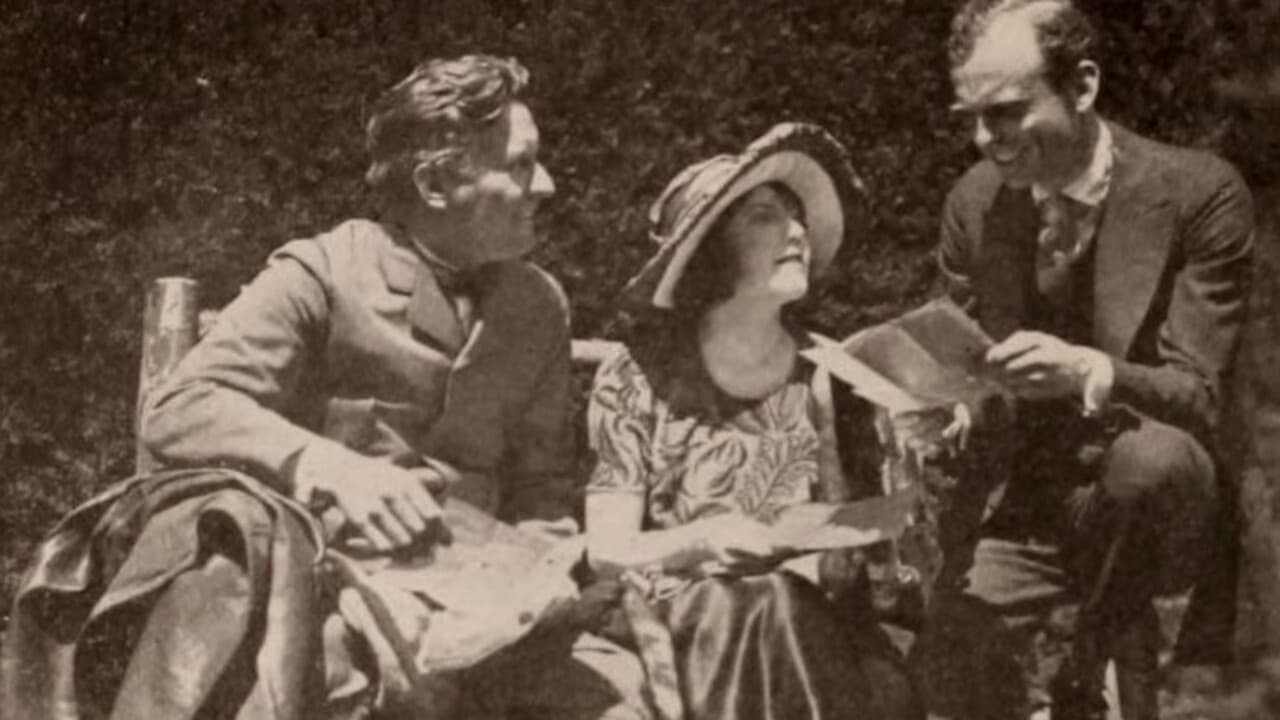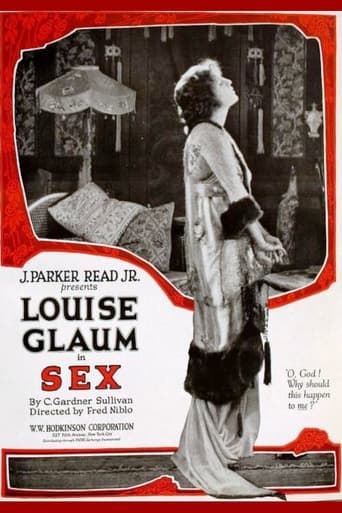

Louise Glaum is pretty much forgotten today. Despite a less than glamorous name, she plays the lead--a nightclub performer who LOVES to seduce married men. She seems heartless and selfish. Eventually, however, this vamp marries a very rich man and is surprised to see how much she enjoys domestic life. However, her beloved husband, Dick, begins cheating on her--with one of the dancers that Glaum instructed on how to be an über-vamp! Talk about irony.All in all, this is a very good silent film with a nice moral lesson. So, despite the very salacious title, the film is actually a nice endorsement of fidelity...though like so many of the Pre-Code films, it takes a long time getting there and glories adultery in the process! Apart from the interesting story, I also really loved the costumes. Seeing Glaum wearing a spidery outfit as she performs was a hoot! My only reservation is the very end--it looks as if perhaps part of the film is missing and they just tacked a very moralistic intertitle card there to try to hide this.
... View MoreLouise Glaum (as Adrienne Renault) is a nightclub "Vamp" who enjoys carefree sex with the married men who come to see her dance at New York's gayest midnight frolic club - "The Frivolity". As the film opens, Ms. Glaum is having a satisfying affair with William Conklin (as Philip Overman); he is stepping out on lonely wife Myrtle Stedman (as Mrs. Overman) to see Glaum perform her sensational "Spider Dance". Glaum has taken new "Frivolity" club beauty Peggy Pearce (as Daisy Henderson) under her wing - taking her to parties and sharing her "you only live once" philosophy. Glaum wants Ms. Pearce to avoid "fly-by-nights", and hook up with a wealthy married man. Well - wouldn't you know it, but, very soon, the frivolous Glaum gets that "nest-building" urge! She finds Irving Cummings (as Dick Wallace), and settles down. Men being men, Glaum soon finds herself sitting home alone, while Mr. Cummings steps out to "The Frivolity" and finds a mistress - who can she be? The luridly titled "Sex" is really an old-fashioned morality story; specifically, it preaches, "The standards of morality eternally demand that the naked soul of Sex be stripped of its falsehoods - which can only be atoned for through bitter tears." Satan even makes a cameo appearance; laughing at Glaum as she parties with Cummings, the devil knows what is in store for the couple! Note, however, that the film offers hope for redemption, as evidenced in its extended coverage of Mr. and Mrs. Overman's storyline.Glaum is great as the "Partying Mistress" turned "Dutiful Wife" - she is very convincing, in a wide ranging role. Watch for the scene where Glaum discovers the identity of her husband's mistress; it's an expertly performed silent scene. The supporting cast is also effective - Pearce (aka Viola Barry) and Cummings (later, a successful director) playing well opposite Glaum. And, Fred Niblo directed "Sex" with a sure touch. Despite its strengths, however, the styles and situations on-screen make the film seem more like a silent relic than a silent classic. ****** Sex (3/29/20) Fred Niblo ~ Louise Glaum, Irving Cummings, Viola Barry
... View MoreInteresting morality tale about a vamp named Adrienne Renault (Louise Glaum) who works the "midnight frolic" at a New York nightclub where she performs this season's sensation "the Spider Dance", which begins by her floating down from the ceiling clinging to a giant spider web. When not dressed up in spider attire, this gal is busy running around and attending wild parties at four in the morning with a married "admirer" named Philip, who leaves his poor wife home alone and lonely, and at the same time Adrienne has taken under her wing, Daisy, an innocent, small-town girl who also dances at the club. Adrienne shows "the kid" the ropes, telling her to "grab what she can get" and not worry whether a man is already married. Soon Philip's wife has hired a detective who gives up the dope on hubby's affair and next thing you know, they are divorced. So - Adrienne's got him all for herself - but not for long 'cause she soon has her vampish eyes on yet another rich man! And what goes around comes around - as soon our vamp learns her lesson about stealing husbands and gets her comeuppance the hard way.This film is quite good, if a slight bit preachy. The wild nightclubs and scenes of frolicsome party-goers are fun to watch and Louise Glaum does a fine job switching from leopard-print kimono wearing, cigarette puffing, ostrich feather fan waving home-wrecker to good girl trying to run her own home. The film has well-done artwork on each title card giving an interesting reflection of the action currently on screen. The print of this on the DVD I saw looked decent, just a bit faded but fairly good as a whole. It featured an appropriate organ score. Worth seeing.
... View MoreShortly after its premiere, in New Jersey, this film was shown in Pennsylvania, where the State Board of Censors changed the title for screenings around that state to SEX CRUSHED TO EARTH, which is comprehensible for the time, but the work is after being a morality play, with the lead character, Adrienne Renault(Louise Glaum) realizing what the wages of her superficial existence are to be. Adrienne, star of the Frivolity Theatre in New York, enjoys stealing husbands with her major acquisition being Phillip Overman (William Conklin) whose wife she scorns when Mrs. Overman begs for his return; a chorine, Daisy (Peggy Pearce) is impressed by Adrienne's victorious self-absorption, and when the latter disposes of Overman in favor of a millionaire, Dick Wallace (Irving Cummings), the two performers find themselves in competition for him, which buckles the flooring of Adrienne's harsh philosophy. Although baldly a melodrama, SEX has many good moments and effective scenes, is well directed by Fred Niblo, and is a proper showcase for Glaum, who at the time of filming outdistances Theda Bara in the sweepstakes for America's favorite vamp; the titles offer witty art design, editing is smoothly done and Cummings, as a wealthy man about town, gives an outstanding, nuanced performance as the axle of the story.
... View More